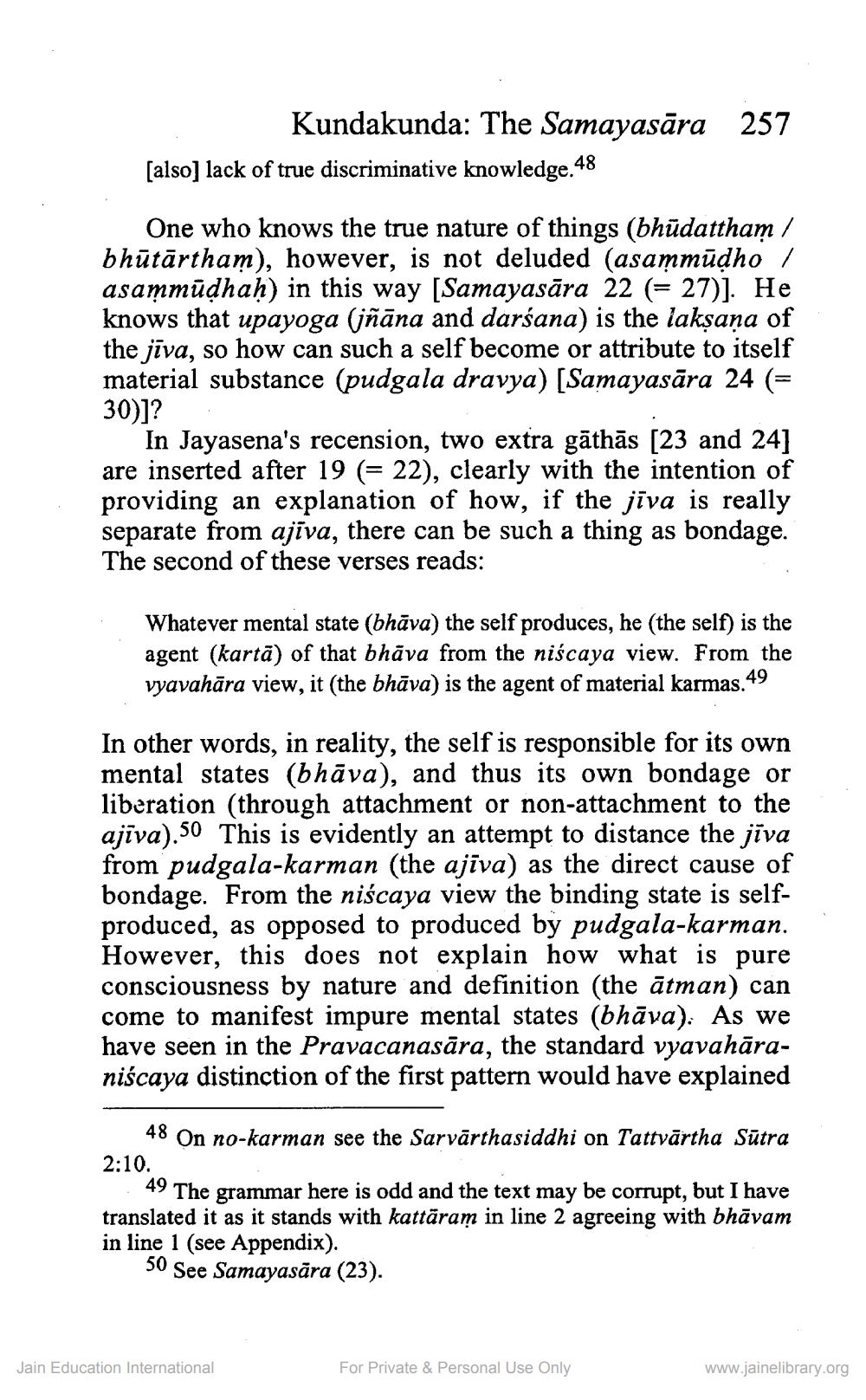________________
Kundakunda: The Samayasāra 257 [also] lack of true discriminative knowledge. 48
One who knows the true nature of things (bhūdattham / bhūtārtham), however, is not deluded (asammūdho / asammūdhaḥ) in this way [Samayasāra 22 (= 27)]. He knows that upayoga (jñāna and darśana) is the lakṣaṇa of the jīva, so how can such a self become or attribute to itself material substance (pudgala dravya) [Samayasāra 24 (= 30)]?
In Jayasena's recension, two extra gāthās [23 and 24] are inserted after 19 (= 22), clearly with the intention of providing an explanation of how, if the jīva is really separate from ajīva, there can be such a thing as bondage. The second of these verses reads:
Whatever mental state (bhāva) the self produces, he (the self) is the agent (kartā) of that bhāva from the niscaya view. From the vyavahāra view, it (the bhāva) is the agent of material karmas.49
In other words, in reality, the self is responsible for its own mental states (bhāva), and thus its own bondage or liberation (through attachment or non-attachment to the ajiva).50 This is evidently an attempt to distance the jīva from pudgala-karman (the ajiva) as the direct cause of bondage. From the niścaya view the binding state is selfproduced, as opposed to produced by pudgala-karman. However, this does not explain how what is pure consciousness by nature and definition (the ātman) can come to manifest impure mental states (bhāva). As we have seen in the Pravacanasāra, the standard vyavahāraniścaya distinction of the first pattern would have explained
48 On no-karman see the Sarvārthasiddhi on Tattvārtha Sūtra
2:10.
· 49 The grammar here is odd and the text may be corrupt, but I have translated it as it stands with kattāram in line 2 agreeing with bhāvam in line 1 (see Appendix).
50 See Samayasāra (23).
Jain Education International
For Private & Personal Use Only
www.jainelibrary.org




